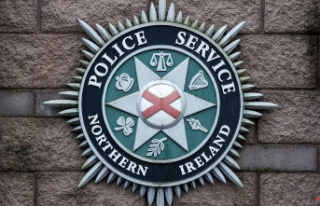Boris Johnson, Conservative leader, has resigned and will step down from the role of prime minister once a new leader is identified. How does this happen?
Prime ministers who have resigned in the past have tended to stay in office until a replacement is found. He would remain in office until the Conservatives elect a new leader like David Cameron and Theresa May before them.
The process could take until October according to some reports, but it could be shorter if Theresa May is replaced as leader within two months.
Sir John Major, a former Conservative Prime Minister, stated that it would be foolish for Johnson to remain in office for more than three months.
Johnson's resignation statement stated that he had only agreed with Sir Graham Brady (the chairman of our backbench MPs) that the selection process for a new leader should start now, and that the timeline will be announced next week.
Some Conservative MPs suggested that the timeline for the leadership election could possibly be compressed and completed in just a few weeks.
Sir John Major stated that one option was for Mr Johnson to resign as Prime Minister immediately, and that Dominic Raab could temporarily take over.
He suggested that there might be significant changes to the process for electing leaders. The 1922 Committee of backbench MPs decides the timeframe for the contest. They could also make changes to the rules before the contest begins.
Sir Keir Starmer, Labour leader, says that if Mr Johnson isn't removed immediately, he would call for a vote to no confidence.
All MPs, not just Conservatives, would be eligible to vote under a motion in no confidence. It would need one more MP to vote in favor than against for the motion of no confidence to be passed.
However, such an outcome would depend on Conservative MPs voting against the government, which is unlikely.
After a Conservative leader has resigned, an election is called for for a new leader. To stand, candidates must have the support of eight Conservative MPs.
If more than two candidates have registered, Tory MPs will cast a series to ensure that only two remain.
All Conservative Party members across the country, not just MPs, will vote for the winner if there are two remaining MPs. There is still time to alter this process.
The winner of the contest to lead Conservatives will be the leader of the party with most MPs in Parliament.
They will be asked by the Queen to form a government.
Most likely not.
There is no general election if a prime minister quits.
Although January 2025 is the latest election that can be held, the new prime minister may call for an election earlier.
There is currently no clear successor for Mr Johnson. However, there are many potential candidates.
Former Cabinet ministers Jeremy Hunt, Sajid Javid and others have stood previously for leadership and could again.
There are also other possible options:
Johnson will still have the same powers until he relinquishes the office of prime Minister. He is now unable to implement any new, radical policies.
He will continue to represent the UK at international events and can make public appointments to his minister team.
His resignation honours list will likely include the awarding of knighthoods and appointments at the House of Lords.












